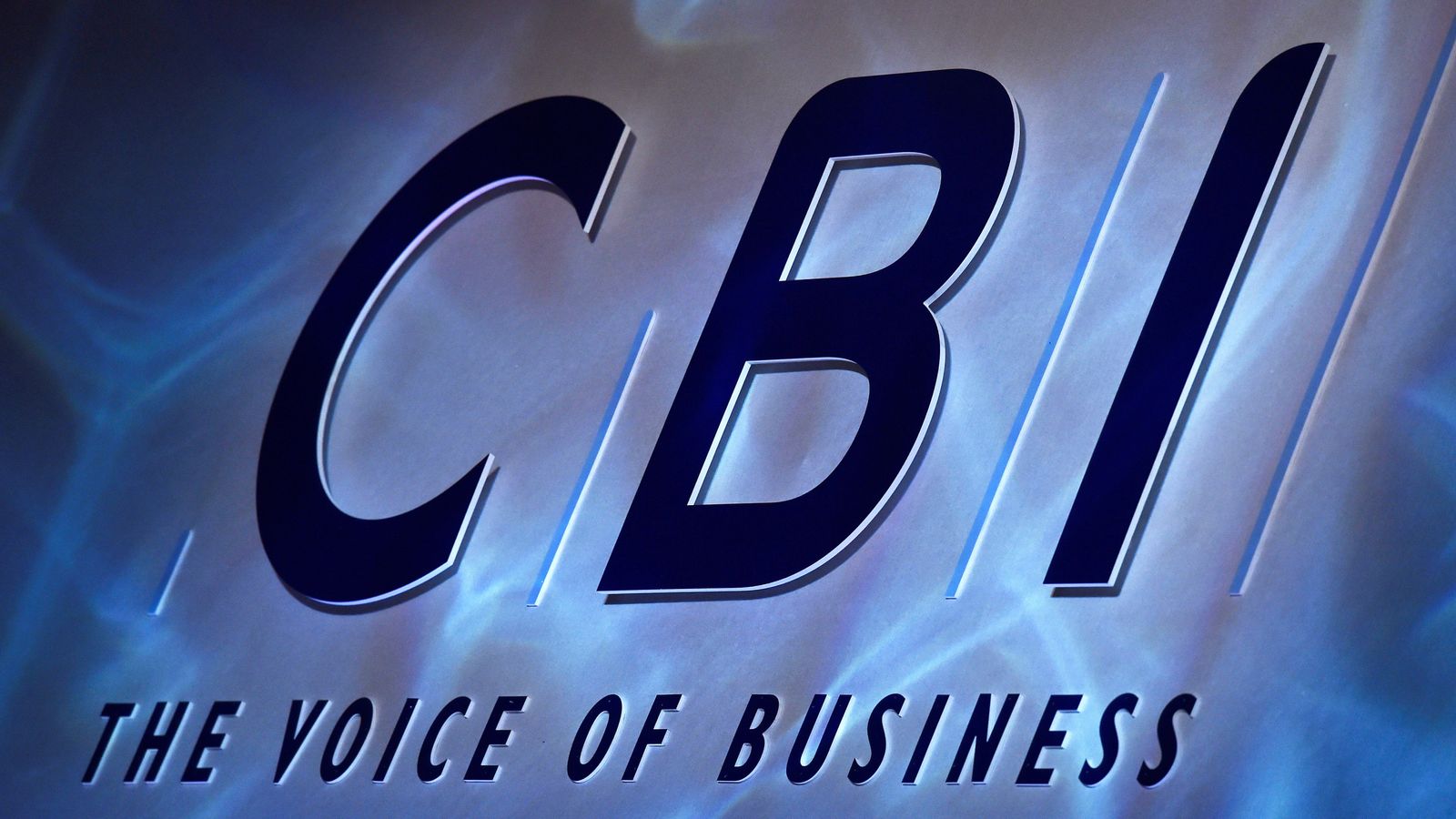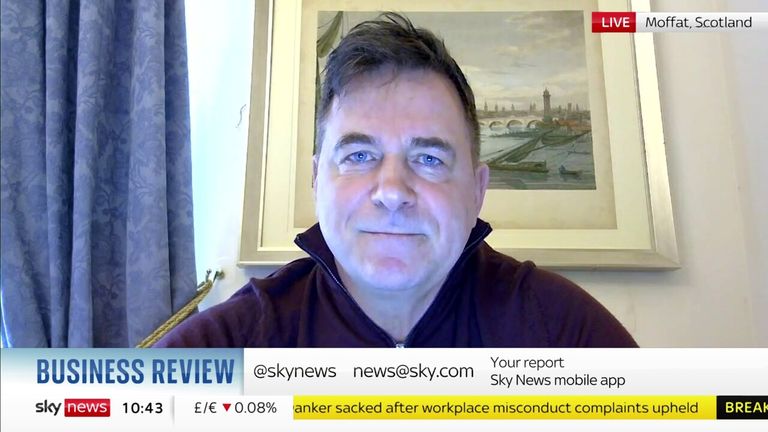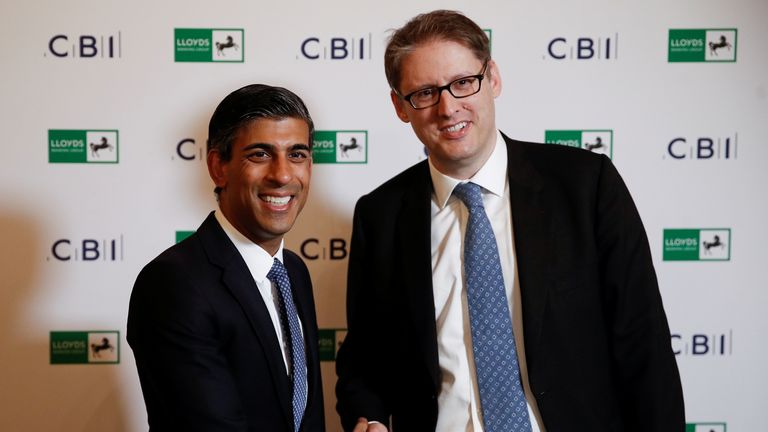Once-distinguished and influential CBI has seen its reputation reduced to rubble
If one were to compile a list of some of the most prestigious blue-chip UK employers, it would probably include NatWest, BP, Shell, Aviva, the John Lewis Partnership, Virgin Media O2, WPP, Phoenix Group, BT, PwC, EY, Schroders and AstraZeneca.
Were that list to be enhanced with prestigious foreign-owned businesses that are major employers in the UK, and which enjoy a meaningful UK presence, it would probably extend to take in names such as BMW, Mastercard, Ford, Fidelity, Jaguar Land Rover and JP Morgan.
That underlines the crisis now engulfing the CBI.
All of those companies have either paused their engagement with the employers’ organisation or cancelled their membership altogether in the wake of the latest allegations consuming the CBI.
It was bad enough that the CBI felt obliged to dismiss its former director-general, Tony Danker, amid allegations of workplace misconduct.
What made it worse was a report in The Guardian, the newspaper that first published details of the allegations against Mr Danker, that a former CBI employee had filed a complaint that she was raped at a party hosted by the organisation back in 2019.
That has now been made worse still by a second woman coming forward to say she had been raped by colleagues while working for the CBI.
It is not now over-exaggerating to say that this has become an existential crisis for the CBI.
An organisation that has in the past proved an extremely effective lobbyist for business has now been twice hobbled – first by government ministers distancing themselves from it and now by members distancing themselves from it.
It is no coincidence that among the first companies to announce today that they were pausing or cancelling their involvement with the CBI were ones led by women: NatWest, whose chief executive is Dame Alison Rose; Aviva, whose chief executive is Amanda Blanc and the John Lewis Partnership, chaired by Dame Sharon White.
All three are role models for women in business and for female entrepreneurs.
All have devoted significant time, energy and expertise to advancing career opportunities for women in the workplace.
All three will have been dismayed – to put it lightly – at some of the horrifying allegations now being aired concerning the CBI.
The organisation has not helped itself.
The circumstances surrounding Mr Danker’s departure have not been properly explained by the CBI to the extent that Mr Danker himself gave an anguished interview with the BBC in which he effectively accused the organisation of subjecting him to a kangaroo court-style process.
This is partly because the organisation is currently rudderless.
Mr Danker’s successor, the former CBI chief economist Rain Newton-Smith, left more than a month ago to take up a senior position at Barclays and a date for her to return to the CBI has yet to be agreed. One wonders now if she will even do so.
It would be no surprise to learn that Ms Newton-Smith, who is currently mourning her father, the distinguished scientist William Newton-Smith, had decided to stay at Barclays after all. No one would blame her.
In the meantime, the organisation’s communications with the outside world have been fronted by its president Brian McBride, who gave an interview to the Financial Times last Saturday and one to BBC Radio 4’s Today programme on Wednesday.
Neither would be described, even by those retaining a modicum of sympathy for the CBI, as a triumph.
Read more from Sky News:
Wet weather adds to cost of living gloom as retail sales dip
MPs call for workers’ rights watchdog to bolster labour protections
Massive spike in concert and festival scams, report finds
It is hard to see how the CBI comes back from this. A once-distinguished and influential organisation has seen its reputation reduced to rubble in a matter of days.
That is not to say that an organisation like the CBI will not emerge from its ashes.
Every advanced economy around the world boasts an organisation like the CBI, such as the US Chamber of Commerce, the Bundesverband der Deutschen Industrie or the Keidanren in Japan. If the CBI did not exist, someone would have to invent it.
And, as it happens, some business people are already thinking along those lines.
Simon Walker, the highly respected former director-general of the Institute of Directors, called in The Times today for the UK’s five leading business lobby groups – the IoD, the CBI, the British Chambers of Commerce, Make UK and the Federation of Small Businesses – to come together to form a unified organisation representing businesses large and small rather as the TUC represents the entire trade union movement.
These organisations enjoy some able leaders, such as Stephen Phipson at Make UK and Shevaun Haviland at the BCC, both of whom are perfectly capable of heading such an integrated body. As, for that matter, is Mr Walker himself.
A merger of these groupings feels like an idea whose time has come.
However, thanks to the fearsome reputational battering it has received in recent days, the CBI feels like an organisation whose time is up.
For all the latest business News Click Here




